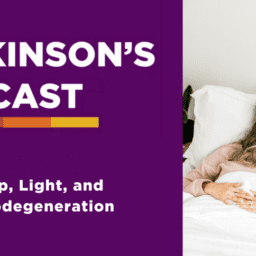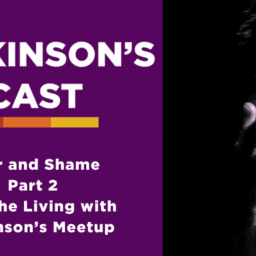Medical knowledge is traditionally obtained from textbooks and during academic lectures. However, occasionally we stumble upon incredible medical content in the most unlikely places, such as Netflix. This video streaming platform is moving towards creating original content. Much of it consists of documentaries, and fortunately for humankind, most of it is uplifting and facilitates an empathetic understanding of the challenges faced by ordinary and extraordinary people, such as the show titled “Stutz.”
Dr. Stutz’s story
The show centers on the life of Dr. Stutz, a spirited, considerate, witty, and grounded psychiatrist based in Los Angeles who lives with Parkinson’s. As depicted on the screen, Dr. Stutz displays characteristic features of a person with Parkinson’s, such as a masked face, a resting tremor, and dyskinesias after taking levodopa. Interestingly, these motor deficits don’t appear to impede him significantly. What does bring his conversations and movements to a standstill is an overpowering, inexplicable sense of fatigue.
Despite possessing an astute and lively mind, Dr. Stutz’s existence is heavily burdened with indescribable, persistent exhaustion. He articulates this fatigue as often being more crippling than his motor symptoms. This portrayal deeply resonates with neurologists and highlights a fact that the medical fraternity has vastly underappreciated: the debilitating nature of fatigue in Parkinson’s patients.
Fatigue in Parkinson’s
Fatigue in Parkinson’s transcends mere tiredness. It cannot be attributed to physical overexertion or alleviated through ample sleep or napping. It manifests as pervasive, relentless exhaustion that bears no relation to the level of physical activity or mental exertion preceding it. It is a complex, multifaceted condition believed to stem from many factors, including degeneration of brain regions involved in energy maintenance, the body’s response to chronic illness, especially chronic low-grade inflammation, and possibly intracranial insulin resistance.
One of the enigmas surrounding fatigue in Parkinson’s is its inconsistency and variability. It manifests differently across individuals and has varying levels of intensity. However, research shows that fatigue significantly impairs the quality of life for those with Parkinson’s by restricting social interaction, diminishing work capabilities, and affecting emotional health. For some individuals, like Dr. Stutz, fatigue can be the most incapacitating symptom of all.
Despite its prevalence and profound impact, the medical community has yet to develop targeted and effective treatments for fatigue in Parkinson’s. Medications used to manage other symptoms of Parkinson’s show little to no effect in alleviating fatigue. While some studies are exploring the use of stimulants, they have yet to demonstrate substantial efficacy for most participants. Addressing fatigue in Parkinson’s patients remains an imperative and unfulfilled need within the medical community.
Witnessing Dr. Stutz’s battle with fatigue underscores the importance of a more comprehensive approach to managing Parkinson’s, which considers the conspicuous symptoms and the concealed aspects that profoundly impinge on the quality of life of those living with it.
Learn More About Fatigue and Parkinson’s
Sleepiness and Fatigue in Parkinson’s and What to Do About It
Why is it So Hard to Sleep Now that I have Parkinson’s?

















